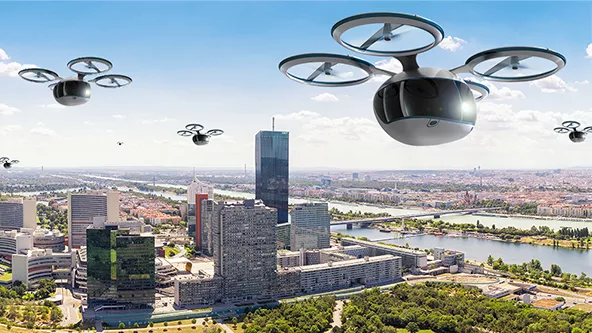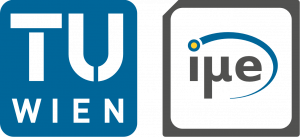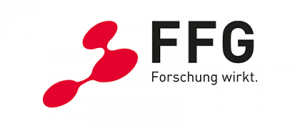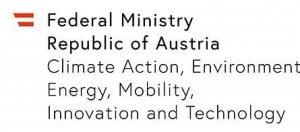
NCONTROL-RL[1], a nationally funded research project led by TTTech recently kicked off in a virtual meeting. Its aim is to develop an avionics platform focusing on future certifiability and researching advantages when using Artificial Intelligence components in flight control. These will optimize system behaviour for autonomous operation in large Unmanned Aerial Vehicles (UAVs) and air-taxi light aircraft applications. Other project partners include the Johannes Kepler University Linz, Schiebel Elektronische Geräte GmbH, Technical University of Vienna and Austro Control GmbH. Together with TTTech, they will realize the ambitious project goals and push for outstanding technological solutions.
Unmanned Aerial Vehicles (UAVs) are widely used in many applications, such as monitoring and goods delivery, even today. However, when flying in civil environments, these UAVs have to be remote controlled by a human pilot. Current technologies that are already used in other industrial domains, such as the automotive sector, can drive developments towards autonomously operating UAVs for civil application. Artificial Intelligence (AI) may help replace the human pilot in several scenarios, which requires significant add-on developments of the systems currently in use. This way, UAVs may soon be able to operate autonomously also in critical areas like urban environments, where safety is of the utmost importance. To transform today’s mandatory human pilot into a digital pilot, dedicated thorough research and development is needed in the area of AI. Furthermore, more challenging investigations must go into methods to develop and certify such technologies according to airworthiness standards. Novel avionics platforms including dedicated hardware as well as data communication and control software modules are required. Additionally, the topic of security must be covered. Such platforms will provide the on-board data communication between the UAV’s control computers, the mission computer and the flight control computer reliably and in real-time.
The project partners are welcoming this unique chance to research and develop new solutions in a market segment that is currently experiencing massive growth. “Investigations in this area could unlock new applications for institutions such as the police, security, border protection or coast guard,” says Andreas Eckel, Team Lead Innovation Projects & Funding Management at TTTech, “Civil applications range from smart farming and powerline inspection to air-taxi services. All these forecast a huge market potential in the next 15 to 20 years to come.”
Consequently, it is an attractive motivator for the project partners to be at the cutting edge of technology and become major players on such a market. Given the fact that all INCONTROL-RL partners are leaders in their respective fields of expertise on an international level, this ambitious goal seems realistic: TTTech is a leading provider of aerospace and automotive grade back-bone networks and technologies for autonomous operation and platforms. Schiebel Elektronische Geräte GmbH focuses on the development, testing and production of the revolutionary CAMCOPTER® S-100 Unmanned Air System (UAS). The Institute for Machine Learning of the Johannes Kepler University Linz (JKU) conducts internationally leading research in the field of Deep Learning and Reinforcement Learning, which is at the heart of Modern AI. The Institute of Microelectronics of Technical University of Vienna has a strong focus on characterization and modelling of reliability issues. Austro Control GmbH provides an internationally renowned high airworthiness expertise and is responsible for safe and economic flow of air traffic in Austrian airspace. In addition, the project will exchange results and information with Airbus Defence and Space, an international reference in the aerospace sector that designs, manufactures and delivers industry-leading commercial aircraft. Focusing on certification issues for AI and multicore implementation for highly safety-relevant application in their project, Airbus is currently leading nationally funded project in Germany, complementing the INCONTROL-RL research area. This will create significant synergies between both projects and channel the knowledge and innovations created in both Austria and Germany.
Find out more on the project page
[1] This project has received funding from the Austrian Ministry for Transport, Innovation and Technology under the Austrian Aeronautics Research and Technology Programme, TAKE OFF, grant agreement no. 881064.

|

|

|
|

|

|

|